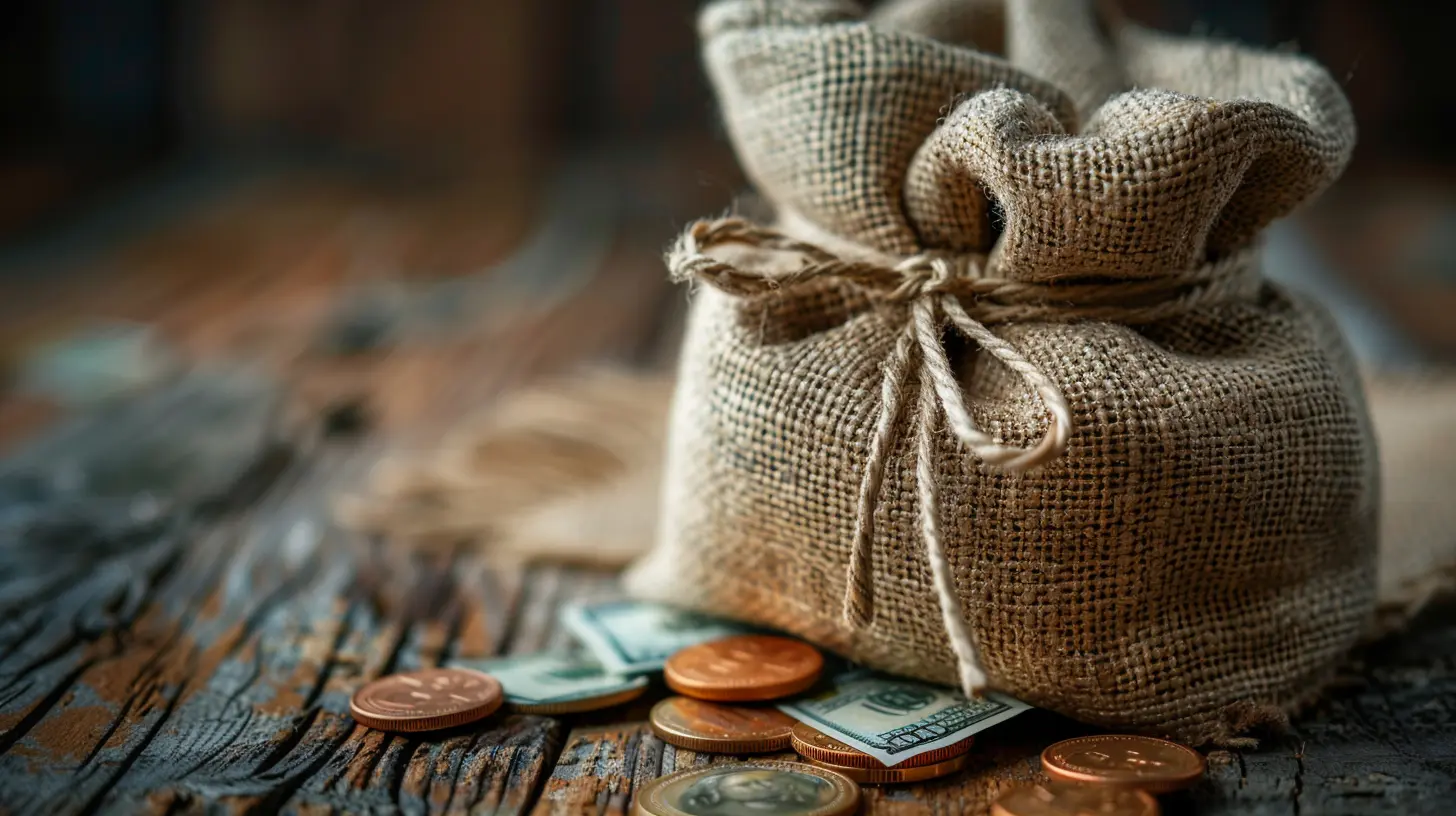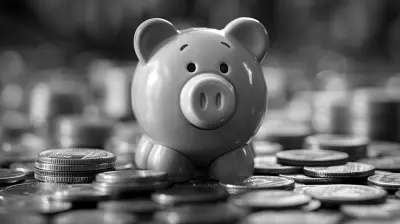How Financial Independence Can Create a Life of Purpose
5 August 2025
Have you ever found yourself daydreaming about quitting your job, traveling the world, or finally spending more time with your family—without worrying about how to pay the bills? You're not alone. Many of us crave a life that feels more free and meaningful. And you know what? It’s absolutely possible.
That’s where financial independence (FI) comes in. It's more than just having a bunch of money in your savings account. It's about creating a life on your terms, one where you get to decide how you spend your time—not your boss, not your banker, and definitely not your bills.
Let’s dive deep into how financial independence can be the key to living a purposeful, fulfilling life.
What Is Financial Independence, Really?
Before we get ahead of ourselves, let’s break it down.Financial independence means you no longer need to work for money because your investments or passive income cover your living expenses. Simple, right?
Think of it like this: instead of trading your time for money, your money works for you. Imagine waking up and thinking, “What would I love to do today?”—not “What do I have to do to get by?”
It’s not just for millionaires, either. Financial independence can look different for everyone—it depends more on your lifestyle choices than an absurdly high income.
The Emotional Toll of Financial Stress
Let’s be real—money problems are exhausting. They silently gnaw at your mental energy, relationships, even your physical health. You can’t sleep. You're not present with your family. You're constantly worrying about next month’s rent or unexpected expenses.Sound familiar?
That’s why reaching financial independence can feel like finally exhaling after holding your breath for years. It’s like lifting a weight off your chest—the freedom to breathe again.
And when that financial stress melts away? That’s the moment space opens up for purpose. For meaning. For joy.
Purpose Isn’t About Hustle; It’s About Freedom
We live in a world that glamorizes being busy. Hustle culture tells us that working 60-hour weeks is normal—even admirable. But here's the kicker: more work doesn’t always mean more fulfillment.On the other hand, financial independence gives you the option to step back and ask: What really matters to me?
Maybe your purpose is spending time with your kids growing up. Maybe it’s volunteering, starting that nonprofit, or writing the book you’ve always dreamed about. Heck, maybe it’s just enjoying your mornings with a cup of coffee and no alarm clock.
Money doesn’t buy purpose. But it buys back your time. And with time, you get to find or rediscover what lights you up.
Real-Life Example: From Burnout to Balance
Let me tell you a quick story.Sarah was a 35-year-old marketing executive, making six figures but constantly stressed. She ate dinner at her desk. Weekends? Ha—those were just unpaid overtime. She was successful on paper, but inside, she felt empty.
After discovering financial independence, she made a plan: cut expenses, invest aggressively, and ditch lifestyle inflation. Within 7 years, she hit her FI number.
Guess what? Sarah now teaches art to kids in underserved communities. She still works—but now it’s from the heart. She's not just living. She’s alive.
THAT is the power of financial independence.
How to Pursue Financial Independence (Without Losing Your Mind)
Alright, so how do you actually get there? How do you go from paycheck-to-paycheck to purpose-on-your-terms?Here’s a roadmap—with a good dose of compassion (because I know it's not always easy).
1. Define Your “Why”
Start with the core question: Why do you want financial independence?This will guide every decision. When the journey gets tough—and trust me, it will—your “why” will keep you grounded. Is it freedom? Family? Adventure?
Write it down. Tape it to your mirror. Hold onto it.
2. Understand Your Numbers
This part can feel overwhelming, but it’s crucial.- How much do you spend monthly?
- What’s your FI number? (A common rule: 25x your annual expenses)
- What’s your current net worth?
This isn’t about shame. It’s about clarity. You can’t take control of your future if you’re blindfolded.
3. Cut the Clutter, Not Your Joy
Too many people think financial independence means giving up everything fun. Nope.It’s about cutting the stuff that doesn’t matter so you can focus on what does.
- Do you actually need five streaming services?
- Can you brew your morning coffee instead of buying lattes every day?
- Is that luxury car payment worth your freedom?
Frugality isn’t deprivation. It’s re-prioritization.
4. Earn More (But Don’t Spend More)
Increasing your income is powerful—whether it’s through promotions, side hustles, or switching careers. Just remember: the trap is lifestyle inflation.Resist the urge to upgrade every time you make more. Save the difference, invest it wisely, and accelerate your path to FI.
5. Invest, Invest, Invest
Let your money work while you sleep. That’s the secret sauce.Index funds, real estate, dividend stocks—pick a strategy that aligns with your risk tolerance and goals. The earlier you start, the more compound interest becomes your best friend.
The Psychological Shift: From Scarcity to Abundance
Here’s something that doesn’t get talked about enough: the emotional side of financial independence.People assume once they hit their FI number, all their problems vanish. Not quite.
Yes, the stress lifts. But then something new appears—space. And space can feel scary at first.
When all the noise of work and money quiets down, you’re left to ask the big questions:
- Who am I without my job title?
- What do I truly want?
- How do I want to make an impact?
That’s where the purpose part kicks in. FI isn’t the end—it’s the beginning of a more intentional life.
What Financial Independence Is Not
Let’s clear up a few myths.- It’s not early retirement if you don’t want it to be.
- It doesn’t mean you’ll never work again—it means you don’t have to.
- It’s not an excuse to check out from the world—it’s a chance to plug in more deeply.
Remember: this isn’t about escaping life. It’s about designing a better one.
Finding Purpose Post-FI: What to Do with Your Freedom
Okay, let’s say you’ve done it. You’ve reached financial independence. What now?Here are a few ways people have found meaning post-FI:
Become a Mentor
Share what you've learned. Help others navigate their financial journey. You’ve got a wealth of knowledge—why not pay it forward?Start a Passion Project
That blog. That podcast. That startup idea. You now have the time and mental space to create something meaningful.Travel with Intention
Not just to escape—but to learn, connect, and grow. Seeing the world changes you. FI gives you the chance to experience that without time limits.Volunteer and Give Back
True wealth isn’t just about what you keep—it’s also about what you give. Use your time and resources to make a real difference.Purpose Is Personal—FI Helps You Find It
Your purpose won’t look like anyone else’s, and that’s more than okay—it’s beautiful.Some people find it in creativity. Others in contribution. Some in quiet. Others in community.
But here’s the thing: financial independence doesn’t give you purpose. It gives you the freedom to search for it, choose it, and live it on your terms.
Isn’t that what we’re all really after?
Final Thoughts: The Journey Is the Purpose, Too
Let’s not forget—you don’t have to wait until you hit your FI number to start living with purpose. The journey itself can be transformative.Every dollar saved is a step toward freedom. Every debt paid off is a layer of stress shed. Every smart investment is a vote for your future self.
Take pride in that. Celebrate those small wins.
Because in the end, financial independence is less about money—and more about meaning.
all images in this post were generated using AI tools
Category:
Financial FreedomAuthor:

Julia Phillips
Discussion
rate this article
1 comments
Knox McGehee
Achieving financial independence isn't just about accumulating wealth; it's the gateway to crafting a life driven by purpose. When money worries fade, we can invest our time in passions and contributions that truly matter, transforming ambition into fulfillment. Purpose awaits beyond the paycheck!
August 30, 2025 at 2:42 AM

Julia Phillips
Thank you for capturing the essence of financial independence so beautifully! It's true—freedom from financial stress allows us to pursue what truly matters and align our lives with our passions and purpose.


